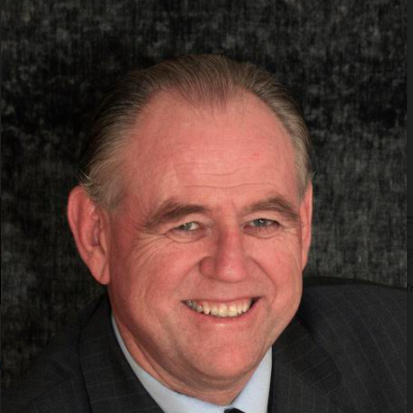
We read and hear a lot about climate change these days, some of it inaccurate, and many average citizens don’t know what or who to trust. I recently met with a friend from many years past, and he told me of his inability to accurately assess the differing information available about climate change. He thought there were two sides to the issue.
“I’m a tree hugger,” he said. “But I understand that people need trees to build houses.” This thoughtful person, an engineer by training, had a balanced view of the importance of the environment and how the economy and environmental protection must be balanced in a sustainable way. However, he was baffled by the stories promulgated by those who would deny climate change is caused by humans.
I tried to explain to him, as I have with others, that there aren’t two sides to the climate issue. Ninety-five percent of the world’s climate scientists have assessed that the growth of greenhouse gases in the atmosphere pose a significant threat to human populations, the natural environment and the world economy.
I told him the confusion often comes from intertwining what scientists know concretely with analyses that provide a range of predictions for the future. In simple terms, scientists know and can document the past growth of greenhouse gases in the atmosphere, including carbon dioxide. They can also document changes in temperature in the atmosphere and the ocean, and correlate those changes with the increase in greenhouse gases. They also know the source of greenhouse gases and can advise policymakers of which greenhouse gases cause the most change.
What scientists can’t predict precisely is the future. Scientists around the world share information, data sets and hypotheses to develop models of how the planet will change because of greenhouse gases. What they agree on is that there will be change within a range of predicted impacts such as these from U.S. Environmental Protection Agency:
- By 2100, the average U.S. temperature is projected to increase by about 3 degrees to 12 degrees Fahrenheit, a broad range that depends on emissions scenario and climate model.
- Studies project global sea levels to rise by another 1 to 4 feet by 2100, with an uncertainty range of 0.66 to 6.6 feet.
The confusion comes over reports that scientists don’t know exactly what impacts will be created by climate change or why scientists refine their initial projections. Those who deny humans are causing climate change say scientists’ inability to precisely forecast when and where impacts will occur means that scientists can’t demonstrate that humans are the cause of climate change impacts to-date and in the future. This confuses the public. However, scientists have determined past impacts and that there will be impacts in the future.
The day after our meeting, my friend sent me an article from an online magazine focused on giving people the knowledge to “push back at the erosion of our liberties and restore constitutionally limited small government.” The article’s lead said that “scientists at the National Oceanic and Atmospheric Administration (NOAA) have been tinkering with their data to make it look as if the planet was warming much faster than expected in order to influence global climate negotiations.” It used the claims of a whistleblower who formerly worked at NOAA. As reported previously in 3p, the claims initiated a call for a House hearing on the issue.
I sent my friend a link to NOAA’s National Centers for Environmental Information. That Web page explained that the work done was a normal examination of data sets. Scientists at NOAA gained new knowledge that explained discrepancies in several ocean temperature data sets and caused them to re-calibrate older data now that they understood the discrepancies.
The original story casting doubt on NOAA’s work first appeared in a sister paper to the Daily Mail, a publication Wikipedia recently banned as an unreliable source. The story was then reported in multiple media outlets that are considered credible by their readers, including the one sent to my friend.
Those readers were not given information that would help them understand the purpose and background of NOAA’s analysis. This lack of knowledge gave credibility to a story that was not credible.
In covering the issue, the New York Times quoted Dr. Zeke Hausfather, a scientist at U.C. Berkeley, and one of the reviewers of the ocean data refinement process. He said the result “strongly suggests NOAA got it right and that we have been underestimating ocean warming in recent years.”
My friend, who admittedly does understand science, wrote back after reading the NOAA Web page: “This is spot on. I can’t believe you found it so quickly.”
But how do average citizens, who don’t have access to people who can guide them to the source, sort out the kind of inaccurate information that courses across the Internet? The answer to that question might be more difficult than predicting the future extent of climate change impacts.
Image credit: Flickr/Bob Familiar

Carl Nettleton is an acclaimed award-winning writer, speaker and analyst. He heads Nettleton Strategies, a public policy firm specializing in oceans, water, energy, climate, and U.S. Mexico border issues. Carl also founded OpenOceans Global, an NGO solving ocean crises by unifying and empowering global communities. Carl serves on the national and California advisory councils for Environmental Entrepreneurs (E2), a national, nonpartisan group of business owners, investors and others who advocate for policies that are good for the economy and good for the environment. He is co-chair of the San Diego Water Conservation Action Committee (CAC) and a member of the San Diego Regional Chamber of Commerce, Lambda Alpha, South County Economic Development Council, Otay Mesa Chamber of Commerce and U.S.-Mexico Border Philanthropy Partnership.














